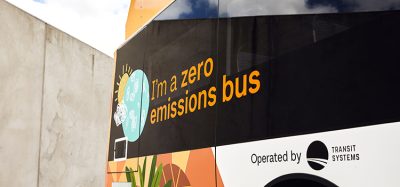New guide to the ‘dos and don’ts’ of micromobility integration launched
- Like
- Digg
- Del
- Tumblr
- VKontakte
- Buffer
- Love This
- Odnoklassniki
- Meneame
- Blogger
- Amazon
- Yahoo Mail
- Gmail
- AOL
- Newsvine
- HackerNews
- Evernote
- MySpace
- Mail.ru
- Viadeo
- Line
- Comments
- Yummly
- SMS
- Viber
- Telegram
- Subscribe
- Skype
- Facebook Messenger
- Kakao
- LiveJournal
- Yammer
- Edgar
- Fintel
- Mix
- Instapaper
- Copy Link
Posted: 1 May 2019 | Intelligent Transport | No comments yet
The National League of Cities (NLC) has released a guide to adopting micromobility in cities across the U.S., issuing advice to local leaders looking to implement shared bikes and scooters.


The National League of Cities (NLC) has released a new guide, “Micromobility in Cities: A History and Policy Overview” designed for local leaders learning how to best to integrate micromobility options – like e-scooters and bikeshares – into their communities. The guide also provides a history of micromobility, from the first bikeshare system launched in 1965 to the rise of e-scooters, which first appeared on city streets in 2017.
Clarence E. Anthony, CEO and Executive Director of the NLC, said: “It seems like new mobility options are showing up every day on the streets of America’s cities, towns and villages. NLC’s micromobility guide provides local leaders with the information they need to tailor local regulations for these new modes of transportation.”
Micromobility systems are an increasingly important part of local transit and transportation options. In 2017, 35 million bike share trips were taken, an increase of 25 per cent over the year before. While some communities have figured out the interplay between operators and regulators, others are still working through how to manage this new transportation landscape.
Brooks Rainwater, Senior Executive and Director of NLC’s Centre for City Solutions, said: “Unfortunately, the model of entering a city first and asking forgiveness later is alive and well with the advent of these new services. But by collaborating and working together, the public and private sector can create policies that work for cities, and real mobility options with true seamlessness between modes of transportation.”
Other challenges for communities include ensuring safety, managing curb space, enabling users to take advantage of first and last mile benefits, and launching pilot programmes.
The report recommends that local leaders:
- Get out in front of surprise deployments
- Utilise pilot programmes to consider right of way policy, cost structure, sustainability and opportunities to work with different companies
- Consider safety
- Develop a plan and agreement for trip data
- Reevaluate bike infrastructure
- Focus on equity
- Be proactive about learning from other cities
Related topics
Intelligent Transport Systems (ITS), Mobility Services, Multimodality
Related modes
Ride-sharing & Car-sharing
Related cities
America
Related organisations
National League of Cities (NLC)
Related people
Brooks Rainwater, Clarence E. Anthony








